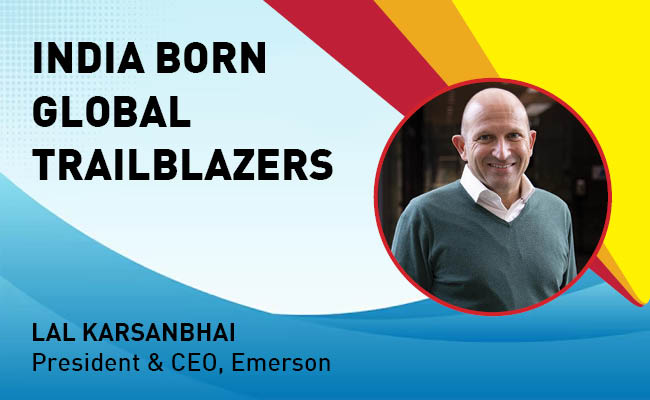Facebook appeals against a fine enforced by Cambridge Analytica scandal
By MYBRANDBOOK

As per the report, the affair between Facebook and Cambridge analytica stems from the discovery that an academic at the University of Cambridge - Dr Aleksandr Kogan - used a personality quiz to harvest up to 87 million Facebook users' details.
Some of this was subsequently shared with the political consultancy Cambridge Analytica, which used it to target political advertising in the US.
It was initially reported that about 1.1 million UK-based users had had their details exposed.
But Cambridge Analytica said it had only ever licensed data belonging to about 30 million people, and a probe by the Information Commissioner's Office found no evidence that UK citizens were among them.
Evidences :
Facebook-Cambridge Analytica data breach
Facebook ads urge its staff to leak secrets
Facebook accused of dark PR tactics
Last month, the watchdog said Facebook's failure to make suitable checks on apps and developers amounted to a "serious breach of the law". It has acknowledged the appeal. This was the last day on which the US firm could challenge the Information Commissioner's ruling.
Facebook appealed against a fine enforced on it by the UK's data watchdog after the Cambridge Analytica scandal.
The social network says that because the regulator found no evidence that UK users' personal data had been shared inappropriately, the £500,000 penalty was unjustified.
Even so, the ICO imposed the maximum penalty possible on Facebook on the basis that UK members had been put at risk and the tech firm had not done enough to address this after learning of the problem. "The ICO's investigation stemmed from concerns that UK citizens' data may have been impacted by Cambridge Analytica, yet they now have confirmed that they have found no evidence to suggest that information of Facebook users in the UK was ever shared by Dr Kogan with Cambridge Analytica, or used by its affiliates in the Brexit referendum," said a statement from Facebook's lawyer Anna Benckert.
"Therefore, the core of the ICO's argument no longer relates to the events involving Cambridge Analytica. Instead, their reasoning challenges some of the basic principles of how people should be allowed to share information online, with implications which go far beyond just Facebook, which is why we have chosen to appeal.
"For example, under the ICO's theory people should not be allowed to forward an email or message without having agreement from each person on the original thread. "These are things done by millions of people every day on services across the internet, which is why we believe the ICO's decision raises important questions of principle for everyone online which should be considered by an impartial court based on all the relevant evidence."
An independent body, known as a General Regulatory Chamber tribunal, will consider the challenge.
If it is unhappy with the decision, Facebook can subsequently take the case to the Court of Appeal.
"Any organisation issued with a monetary penalty notice by the Information Commissioner has the right to appeal the decision to the First-tier Tribunal," said a spokesman for the ICO. He added "The progression of any appeal is a matter for the tribunal. We have not yet been notified by the tribunal that an appeal has been received."
The appeal risks dragging out an affair that has undermined the public and politicians' trust in Facebook and Mark Zuckerberg.


Legal Battle Over IT Act Intensifies Amid Musk’s India Plans
The outcome of the legal dispute between X Corp and the Indian government c...

Wipro inks 10-year deal with Phoenix Group's ReAssure UK worth
The agreement, executed through Wipro and its 100% subsidiary,...

Centre announces that DPDP Rules nearing Finalisation by April
The government seeks to refine the rules for robust data protection, ensuri...

Home Ministry cracks down on PoS agents in digital arrest scam
Digital arrest scams are a growing cybercrime where victims are coerced or ...


Icons Of India : AMIT CHADHA
Amit Chadha serves as the CEO and Managing Director of L&T Technology ...

ICONS OF INDIA : SUNIL VACHANI
Sunil Vachani is the Chairman of Dixon Technologies (India) Ltd. Under...

Icons Of India : ALOK OHRIE
Alok Ohrie leads Dell Technologies’ India business, overseeing Sales...


DRDO - Defence Research and Development Organisation
DRDO responsible for the development of technology for use by the mili...

BEL - Bharat Electronics Limited
BEL is an Indian Government-owned aerospace and defence electronics co...

PFC - Power Finance Corporation Ltd
PFC is a leading financial institution in India specializing in power ...


Indian Tech Talent Excelling The Tech World - Steve Sanghi, Executive Chair, Microchip
Steve Sanghi, the Executive Chair of Microchip Technology, has been a ...

Indian Tech Talent Excelling The Tech World - Sanjay Mehrotra, CEO- Micron Technology
Sanjay Mehrotra, the President and CEO of Micron Technology, is at the...

Indian Tech Talent Excelling The Tech World - Lal Karsanbhai, President & CEO, Emerson
Lal Karsanbhai, President and CEO of Emerson, assumed the leadership i...
 of images belongs to the respective copyright holders
of images belongs to the respective copyright holders